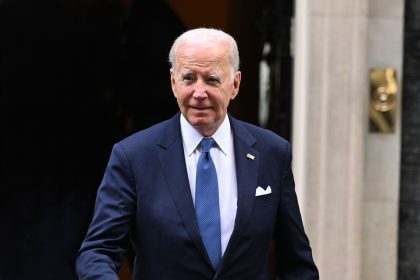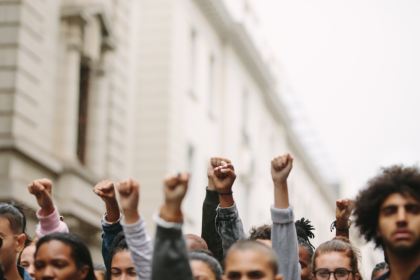Karen Baptiste, Ph.D.,is a former special education teacher who has dedicated her life to fighting for Black and brown students who are being mishandled by the school system. During her time as an educator, she saw how many kids, especially those from her community, were being sent to special education classes unnecessarily. When she recognized the pattern, she stopped teaching, went back to school and started working to fight against the school-to-prison pipeline. She is the creator of the “Preschool To Prison” documentary.
What exactly is the school-to-prison pipeline?
Yeah. So, the school-to-prison pipeline is literally a set of policies, procedures and practices that a school district, a school building, or an individual chooses to engage in. To control the bodies of children, to control the environment where children are, to control the output of children’s behavior. For example, you have zero tolerance policies. Well, right. That’s an example. Zero.
What do you think Trump dismantling the Department of Education will bring?
You know, I’ll tell you the truth, I don’t know what [it’s] going to bring. But I will tell you, when he says he wants to dismantle the Department of Education, that’s going to require an act of Congress. He cannot just single-handedly just say tomorrow, the Department of Education no longer exists. It does require an act of Congress also in dismantling, people need to understand. Right. When I hear people say, yeah, it belongs to the states, all they’re doing is regurgitating, but they don’t even know what they’re talking about. The reason the Department of Education exists was because the states didn’t do it right in the first place. And so the Department of Education had to become a place of oversight. Why? Because you had schools denying access to children with special needs. I’m not even going to talk about Black children right now. I’m just going to talk about children with special needs [who] were being denied access to schools in this country. For a long time. So, the Department of Education was formed to ensure the civil rights of children being able to go to school, even if they have a disability.
What message do you have to incoming educators?
I strongly encourage them to truly, truly do their research on the community that they want to work in, really understanding what their role means as a teacher. Who are you? And you need to know, are you built for this? Because listen, when you get in there, you’re going to be confronted with some things that as an adult, you’ve probably never experienced in your life. Especially since a lot of the new teachers are teaching in communities that don’t look like them. And if you’re not built for this, those kids are going to know.
What reforms and strategies do you believe would be most effective in at least helping end systematic racism and ableism in the schools?
First of all, teacher prep programs. We need to start with teacher prep programs because we have a new batch coming in and we want to make sure that new batch coming in is not tainted with the current batch of how things are done. So, we need to really revise teacher prep programs, teach them about the school-to-prison pipeline and teach them about harmful practices, what these practices mean. Also, these teachers need to be leaders who don’t operate in fear. I worked with several leaders who knew that was not a good decision, but they operate in fear. You can’t call yourself a leader and operate in fear. Leaders stepping into this space need to be bold, courageous leaders that make it a safe space for children and adults.










